Introducing the 2024-2025 C-LAB Fellowship Cohort
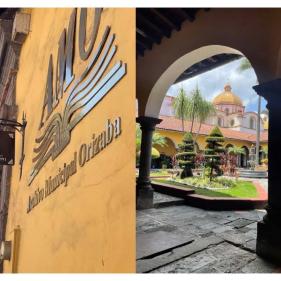
Cerro y Ciudad: Urbanization and Multi-Racial Environmentalisms in Post-Revolutionary Orizaba, Veracruz
In recent years, Afro-Indigenous activists in Veracruz have amplified their concerns regarding state and local official’s acknowledgment of racial inequities and continued forms of settler-colonial violence against Indigenous communities. In the Orizaba-Córdoba region of Veracruz, these activists have mobilized to provide aid for victims of recurring forest fires and critique inequitable resource allocations between the region’s urban centers and the Sierra de Zongolica, which is home to several Indigenous Orizaba-Nahuatl pueblos. Local activists understand that the fight for racial justice is entangled in the protection of Afro-Indigenous ecologies. With contemporary activism in mind, this research project interrogates the role of race and racialization in Cordoba-Orizaba Indigenous and Afro-Indigenous struggles against land dispossession throughout the twentieth century. I am particularly interested in how activists have articulated their relationship to land and place through critiques of settler colonialism and racialized violence. This project considers the role of agrarian reforms, urbanization, and migration in Post-Revolutionary Mexico and the effects of mestizaje as a pervasive settler-colonial ideology that takes form in the everyday practices and relationships between Black and Indigenous people and settler institutions. By historicizing how environmental and racial justice activists have mobilized in the region over time, I intend for this project to provide contemporary activists with insight into how to continue the fight against settler colonial violence, erasure, and dispossession.
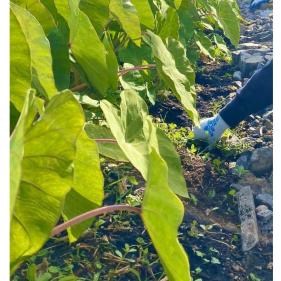
Cultivating Kalo and Kanaka on the Continent
Following the cultivation of kalo (taro), a canoe crop significant to Kanaka 'Ōiwi (Native Hawaiian) ways of knowing and being, this project aims to understand kalo’s role in the diasporic efforts for Hawaiian food sovereignty, as an emblem of Hawaiian resistance, and its implications for coalition building among Oceanic peoples and greater movements of anti-imperial struggle. Through a Kanaka 'Ōiwi lens, this research draws on the ethics and methodologies of mo'olelo (storied histories), aloha 'āina (love for the land which feeds), and mo'okū'auhau (genealogies) to trace the movement, cultivation, preparation, consumption, discourse, and art of kalo as it manifests in Indigenous resistance to settler colonial violence and militarization. Where do we find kalo roots? Where and why do we find them outside of Hawai’i? How do legacies of imperial violence and indigenous resistance fertilize these roots for decolonial praxis?
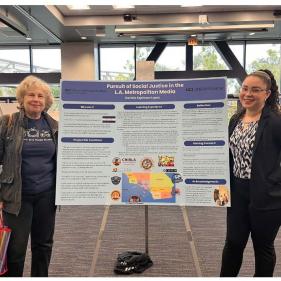
Latinx Media and the Pursuit of Social Justice: A Transmedial Approach
A central tenet of my book project is that social justice can be achieved as much in the process of producing and engaging with media as in the treatment of social justice themes in a variety of media texts. At its core, the book focuses on the shaping of the producer-participant subject relationship in the crafting of media coverage. Social justice in media, I argue, can be defined as recognition and a pathway to agency for participant subject and viewer. This year, I will be conducting field research for Chapters 3 and 4, which analyze the coverage by Spanish-language media of social justice issues affecting Latinxs in the Los Angeles metropolitan area, such as immigration rights and experiences, housing and labor rights, educational access, indigenous rights and gender equality. For chapter 3, I will be looking at the work of two low-power multilingual radio stations, Radio Indígena-Mixteco in Oxnard and Radio Santa Ana in Santa Ana. For chapter 4, I will be researching the working relationship between community organizations and Spanish-language television and print media outlets. What are the possibilities for media enfranchisement through specific SL media? What do community organizations have to say about the ability of these media to deliver news that is relevant and empowering to the community? To what extent are reporters and anchors at local SL outlets able to exercise their agency in the direction(s) taken by news stories? What should the role of the Latinx journalist be? I will be assisted in this mixed method research by Dream Project Fellow, Dariela Espinoza López, who will also be collaborating on a website to share research results with project participants.
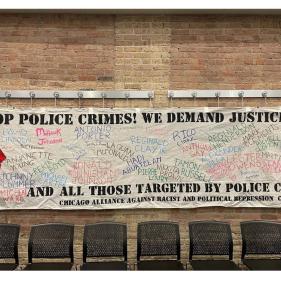
Alienated Activism: The Process and Promise of Black Social Movements
Each generation of Black young adults experiences some event that confirms their exclusion, their otherness, their alienation from the American system. This could be the murder of Emmet Till, the beating of Rodney King, the murder of Trayvon Martin, or the murder of George Floyd. These are just some of the names in the “tragic parade of unarmed Black dead” lost to violence (Hooker 2016). These violent and jarring events spark new fights (both organized and unorganized) against anti-Blackness– from the Civil Rights Movement, to Black Power, to urban uprisings, to Black Lives Matter. Young Black people, so alienated from the political system, were organizing for the BLM mass movement, one of the most consequential social movements of our time. After the 2020 uprisings, the New York Times named BLM the largest mass mobilization in American history (Buchanan et al. 2020). In my book, I examine the BLM mass movement in Chicago, discussing the specific experiences of Black alienation, the processes of Black organizing and political education, and the organizations and actions that exemplify movement values in the city. Through archival analysis, observation, and 75 interviews with activists across racial justice and progressive organizations, I reconstruct the history of the movement through the lens of individual experiences and organizational histories. In this way, my work connects the ways personal experiences lead people to seek out new modes of politics in social movements and how social movement organizing can change a city. Ultimately, the movement in Chicago reverberated across the nation influencing direct action, political education, and policy associated with the movement.

Demanding Restorative Justice: The Case for Media Reparations
While “diversity” and “inclusion” are popular buzzwords in the contemporary landscape of U.S. media industries, people of color (POC) remain marginalized in media. UCLA’s annual Hollywood Diversity Report, the Annenberg Inclusion Initiative’s studies, public broadcasting statistics, and FCC data reveal that communities of color are systematically disenfranchised in terms of media representation, employment, and ownership. For over a century, POC have been subjected to discrimination and marginalization in media with little to no structural change. Inspired by the Free Press’ Media 2070 initiative, this project lays out the evidence for why media reparations are necessary to redress U.S. media’s historical systemic racism against POC. To do so, I will demonstrate how mainland U.S. broadcasting has historically operated as a white racial project that has systemically privileged whiteness and excluded, segregated, and disenfranchised POC. Broadcasting’s white racial project has determined who gets to broadcast and for whom, who has control over programming and employment, and who has the power to shape representation. Given these practices and history, I make the case for broadcast media reparations to redress U.S. radio and television segregationist practices and legacies of institutional racism. I conclude by imagining what media reparations might look like for Latinx communities, and the impacts of what deploying a more egalitarian, expansive notion of Latinidad can enable.
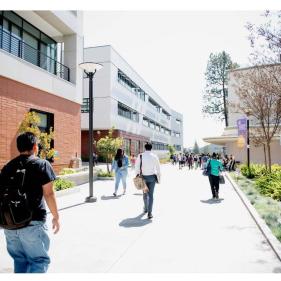
Navigating Pathways to Adulthood in an Era of Precarity: Latino Young Adults on the Community College Pathway
The transition to adulthood in the United States is a precarious time when young people strive for stability in a vastly unequal society. Today, many young adults look to higher education to find this stability. However, prevailing research on this transition and its relationship to higher education predominantly focuses on the experiences of White working-class and middle-class young adults enrolled at four-year colleges, leaving a significant gap in our understanding of the unique pathways and challenges faced by racialized minorities who are far more likely to attend community colleges. In this study, I turn attention to the understudied group of Latino young adults who look to California Community Colleges to support their pathway to a stable adulthood. Drawing on 140 semi-structured life history interviews with Latino young adults who attend or have previously attended a community college in Southern California, I investigate how race, class, and gender shape the educational pathways of these young adults as well as their understandings of the relationship between the higher education and the transition to adulthood. I closely examine participants’ life histories to trace how Latino educational experiences and pathways through community college are dynamically shaped by family-fostered cultural values that emphasize the importance of college graduation for social mobility, the class-based and gendered constraints of Latino families, and the institutional support available at community colleges.
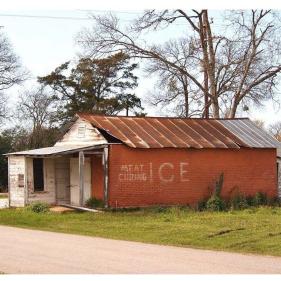
The Food We Eat and the People Who Feed Us
This project focuses on problems related to coerced labor in the U.S. food supply chain. The goal of this project is to move past anti-exploitation strategies that rely on “consumer empowerment” modes of governance, which rely on market-based levers for social change through which the disclosure and dissemination of information allows consumers to “vote with their dollars.” In this project, I argue that consumer-worker alliances overstate the ability of markets—of any market—to address problems within domains that fall uniquely within the control of state and government actors. This is especially true in an industry filled with noncitizen workers whose legal vulnerability can be corrected only by governmental entities. Against this backdrop, this project aims to build two datasets. One is a compilation of anti-immigrant laws within the American South thereby clarifying the relationship between industrial reorganization efforts by meat processors and the emergence of local immigration policies. A second dataset would focus on qualitative data obtained through interviews with stakeholders in these communities. Here, the goal would be to identify clusters of stakeholders who participate in local politics.
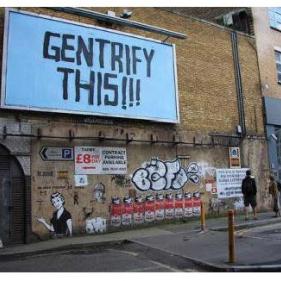
Mapping the City: Gentrification and Racial Disparities in Food Access and the Built Environment for Lower-Income Latiné in Costa Mesa, CA
This project focuses on understanding gentrification and food access from a community perspective. Gentrification is increasingly amassing attention as an important public health issue due to potential health and health equity impacts associated with neighborhood change. Literature examining the relationship between gentrification and food access has identified neighborhood change from gentrification increases the availability of healthy food. In turn, these neighborhoods transform from food deserts to places with more healthy food options. However, it is questionable as to whether these new foods are accessible or affordable for all residents, and the food environment changes may be a “food mirage”, where healthy food is available, but only for those with higher incomes. This study will help to uncover how “food mirages” might contribute to food insecurity in gentrified or gentrifying Latiné communities in Costa Mesa, California, who already experience higher food insecurity rates and diet related disease burden. Using a community-based participatory research approach, I will partner with Resilience Orange County (ROC) and their advocacy groups to conduct participatory mapping sessions where community members will map their food access places, routes to these places, and features of the built environment that are challenges and assets to this access. From this work, I will co-produce a research brief with the community partner highlighting the findings and preparing this brief to be disseminated to local city council leaders.
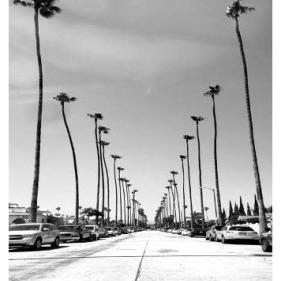
Racialized Youth and Violence in South Central Los Angeles
South-Central Los Angeles is home to many working-class communities of color. It is a place where Black youth and Latinx youth come of age together: they are neighbors, grow up attending the same schools, and develop place-based identities. Historically, however, South Central has been stigmatized as a section of Los Angeles with high poverty rates, crime, gangs, and racial tensions. South Central has also been documented as a site of repression, policing, surveillance, and criminalization. These accounts largely ignore the experiences of Black and Latinx youth and their place in South Central. Using semi-structured and informal interviews and participant observations within various settings and institutions in South Central, I examine how Black and Latinx youth experience, respond to and navigate violence on a day-to-day. Theoretically, I draw on the perspectives and subjectivities of racialized youth to broaden current conceptualizations of violence. My research agenda and perspective are textured by my experiences and identity. I was born to working-class Mexican immigrants and raised in a Black and Latinx community within South Central. After completing a BA and MA, I taught at high schools in South Central and spent years volunteering in prisons (men and women facilities) and youth residential centers.
The C-LAB graduate and faculty fellowship aims to cultivate and support a cohort of scholars advancing social justice through their research questions, innovative methodologies, and/or diverse publication dissemination methods. Selected follows present their work-in-progress at monthly brown-bag seminars as they work toward completing their proposed projects.
Introducing the 2023-2024 C-LAB Fellowship Cohort
Samantha Canty
PhD Student in the Department of Anthropology
Sister Synergy: Uncovering the Dynamics of Black Women’s Political Participation

To add a more acute understanding to the discussion surrounding Black women’s political participation, I develop the original concept, Sister Synergy. I bring together group consciousness literature, Maternal Consciousness, and Black feminist theory to explain how the themes embedded in Sister Synergy lead to stronger intersectional solidarity among Black women which should translate into higher political interest, political participation, and trust even after controlling for several other relevant factors. In addition to strong theoretical grounding, I also use existing and original data throughout the study. This piece is centered on how the intersection of social identities impact how Black women engage in politics. I expect results to demonstrate that many of the traditional factors associated with high levels of political participation matter less for Black women as a group and that Sister Synergy as analyzed through an intersectional lens plays a key role in encouraging political participation amongst Black women.
Temitope Famodu
PhD Student in the Department of Global and International Studies
New Methods in Global Black Geographies: Nigerian Educational Migration in Debrecen, Hungary
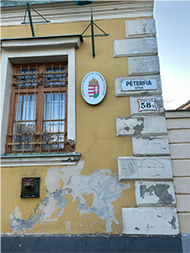
This research project considers the present-day implications of Cold War Era education migration policy on black and African immigrants in Central Eastern Europe through collaboration with Nigerian students at the University of Debrecen, Hungary. The University of Debrecen, home to the largest number of Nigerian international students in the country is an important site to consider how concepts of race, place and identity co-constitute one another. This project asks 1) Where and why have Nigerian students chosen to live in Debrecen? 2) How are Nigerian students in Debrecen negotiating race, gender, sexuality, nationalism, and belonging in their quotidian experiences? 3) How are racial, gendered, sexual, and national identities articulated in post/socialist Hungary’s historic relationship with post/colonial Nigeria? And 4) How do conceptions of Hungarian indigeneity and whiteness impact present attitudes toward migration and blackness in Debrecen? Using methodologies of walking interviews, spatial analysis, and archival research, this project is situated within postcolonial and postsoviet intersections and contributes to present conversations of black geographies and critical migration studies.
Stephen Lee
Professor in the School of Law
The Slow Death of Family Separation

My project examines how the American legal system fosters and rationalizes family separation within migrant communities across legal settings. In many settings, including admissions, deportation, enforcement, and transnational remittances, the law frustrates the ability of migrants to reunite with or remain connected to their family members. I argue that these “ordinary” forms of family separation enable and inform the extraordinary acts of violence that are already so familiar. In other words, family separation is best understood as a type of harm that operates along a spectrum rather than belonging to a distinct category. It is both a harm and a process, which unfolds incrementally over a long period of time thereby obfuscating the law’s role in all of this.
María Montenegro
Assistant Professor of Global and International Studies
Co-Director of the California Mukurtu Hub
California Native Mukurtu Hub

The California Native Mukurtu Hub provides basic support and training to tribal nations/communities and organizations interested in setting up their own digital archives using the Mukurtu content management system (CMS), by offering localized training and workshops as well as continued support for developing and maintaining their Mukurtu sites. The Hub also offers a testing or demo site, and by generating “user stories” based on the needs of the Hub’s community users (Spokes), it ensures that future development within Mukurtu is driven directly by community needs as they define and document them. The Hub’s priority is to help communities build digital archives that foster relationships of respect and trust, while enabling healthy collaborations around culturally responsive forms of sharing, accessing, and using information that foreground Indigenous knowledges and data sovereignty.
Jenniffer Cecilia Perez Lopez
PhD Student in the Department of Sociology
Transnational Space and Legal Realities: Identity Development Among Central American Children of Immigrants
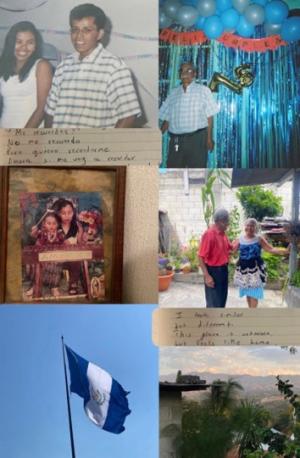
One’s racial, ethnic, or indigenous identity is an important site where social relationships are (re)imagined and (re)made. One’s identification can be a site of belonging, with consequences for individual well-being and structural integration as well as group recognition, collective memory, and power. My study examines how Central American children of immigrants construct their identity. Within this process, I pay particular attention to the role of transnational connections and the constrained mobility of undocumented immigrants who make up half of the Central American immigrants. Until recently, very little research has focused on Central Americans in the United States. My research seeks to bridge the emerging field of Central American studies with Sociology to better understand the identity development of this group. I will use a non-traditional qualitative approach by incorporating autoethnography and document 60 testimonios from Central American children of immigrants into my study; these methods humanize and advance social justice by building solidarity, recognizing once-silenced experiences, and calling for social change.
Christofer Rodelo
Assistant Professor of Chicano/Latino Studies
Latinx Racialization in the Performances of Maximo and Bartola, the Aztec Children
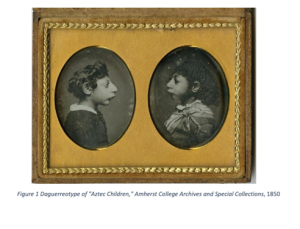
This project focuses on the relational process of Latinx racialization as captured in the performance repertoire of the side show performers Maximo and Bartola. Also known as the “Aztec Children,” these Indigenous children from El Salvador toured the United States and Europe from the 1850s to the 1890s as fantastical representations of a lost race of humanity. I focus on their public exhibitions as examples of what I term spectacles of relation: performative moments of racialization that led to a nascent Latinx identity formation in the second half of the nineteenth century. In particular, I highlight how their performances as “Aztec” relied on their relational staging with Black performers in circuses and human zoos for White spectators in an increased period of American imperial expansion. As the public-facing component of the project, I will also develop and launch a digital humanities initiative titled Performing Latinx Histories. This will be an online resource that catalogues primary sources related to Maximo and Bartola and uses digital mapping tools such as ArcGIS StoryMaps to detail their history for broader audiences.
Camille Samuels
PhD Student in the Department of Anthropology
See That my Archive is Kept Clean: Distilling the Life and Work of Dr. Clyde Woods through Archival Ethnography
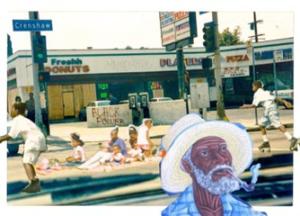
This project is an experimental ethnographic exploration of the life and work of Dr. Clyde Woods through his archival collection at the Southern California Library for Social Science and Research (SCL). Dr. Clyde Woods was a prolific scholar of Black life, cultural production, and urban development across the US. His major published works, Development Arrested (1998) and Development Drowned and Reborn (2017), pay particular attention to what he calls the “blues epistemologies” emanating from working-class Black people in New Orleans and the Mississippi Delta more broadly. His work analyzes the ways in which Black cultural production, through music, shapes Black development agendas on the community scale. He was known for his detailed study, thorough political economic analysis, and steady pace of working on his scholarship. Through this project I will continue working through this collection to push beyond the standard and accepted forms of ethnographic research as a process conducted with sentient interlocutors, to one that traverses time and space as a conversation between the archivist and the departed. In considering these intergenerational academic genealogies, I seek to reflect and write about the experience of conducting an ethnography of the archive as a number of Black studies scholars have begun to explore (Okechukwu 2022; Reese 2023; Sojoyner 2021). As a result, I will be helping to produce the first digital finding aid for SCL that encapsulates the complexities of Dr. Woods' work and engagement with Black cultural production, the librarians are interested in creating a multimedia finding aid that can be used in the library as well as hosted on their website for external use.
Devin Shanthikumar
Associate Professor in the Paul Merage School of Business
Banks’ Diversity Policies and Mortgage Lending to Minorities
Co-Principal Investigators: Prof. Ivy Feng, Wisconsin School of Business, University of Wisconsin-Madison and Prof. Dayin Zhang, Wisconsin School of Business, University of Wisconsin-Madison

Mortgages play a critical role in Americans’ home purchases. As of 2022, residential mortgage debt in the U.S. totaled $11.92 trillion. However, there exist wide racial disparities in mortgage lending. Despite growing emphasis on Diversity, Equity, and Inclusion (DEI), recent studies show that minorities continue to face lower approval rates, and, if approved, higher interest rates. This mortgage lending disparity plays a significant role in the wealth gap and the challenges to building generational wealth in minority communities. This study examines if and how banks’ DEI policies affect racial disparities in mortgage lending, exploiting variation in the existence and strength of banks’ DEI policies, and using real-world lending data. This research addresses an issue of fundamental importance – the mortgage lending gap – and will lead to insights into what can be done to address it.
